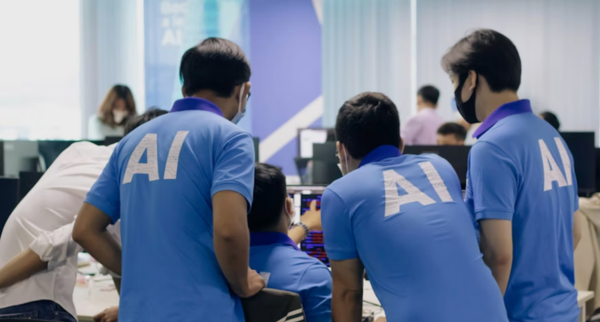Build an Emotionally Intelligent Team with AI
As AI takes over many routine and manual tasks at work, what makes companies truly successful will be human qualities. Skills like empathy, self-awareness, and emotional intelligence will matter more than ever.
Emotional intelligence is often seen as a personal skill, but it’s also very important for teams. Vanessa Urch Druskat, author of The Emotionally Intelligent Team, explains that team EI is about habits and norms that meet people’s basic social needs when they join a group. These include the need to feel accepted, understood, valued, to share in team discussions, and to feel like their input really matters.
In my company, people work in cross-functional teams. I’ve seen that how well a team works together can decide whether a project succeeds or fails. That’s why I focus on building emotionally intelligent teams, where everyone feels respected and heard. Today, AI tools can actually help leaders do this by supporting the human side of teamwork. Here are some strategies I’ve found useful:
1. EI-Focused Hiring with AI
The first step to building an emotionally intelligent team is hiring the right people. Many leaders rush through this process and deal with problems later, but that usually backfires. Careful hiring is worth the effort.
AI can make hiring faster and smarter. Research shows AI can reduce hiring time by 20–30% while still focusing on important soft skills.
-
Conversation agents can chat with candidates, collect details like contact info and availability, and make the experience more engaging than just filling out forms.
-
Assessment agents can give tests on technical, cognitive, or behavioral skills. Some even use real-life scenarios and analyze responses for tone, communication, and problem-solving.
-
Interview agents like HireVue can run interviews using speech recognition and sentiment analysis to assess responses.
These tools allow companies to look beyond resumes and hard skills. They help identify qualities like empathy, adaptability, and teamwork potential. Over time, hiring with emotional intelligence in mind leads to stronger, more cooperative teams and fewer conflicts.
2. Checking Employee Morale
Employee surveys are a common way to see how people feel about their jobs. But surveys only tell part of the story. Some workers may not feel comfortable giving honest feedback, while others may not even realize they’re less engaged. This is where AI can help.
For example, AI tools can study messages in platforms like Slack and look at the emotional tone. This gives leaders a clearer picture of team morale, engagement, and satisfaction. Let’s say one person always dismisses their teammate’s ideas, which makes others less willing to share. AI can flag this pattern so leaders can step in and encourage more supportive communication. These tools can also detect early signs of stress or burnout before they become bigger problems.
AI meeting tools go a step further. Instead of only summarizing meetings, they also show the overall mood—positive, negative, or neutral—and how it changes throughout the conversation. They can even track how much each person spoke, their sentiment, and key points. This helps leaders understand not just what was said, but how people felt. Of course, AI isn’t perfect—it might miss things like sarcasm. But if leaders use it wisely, it’s a useful support.
It’s also important to protect privacy and build trust. Employees should know these tools are being used and understand the goal is to help, not spy. With these insights, leaders can solve problems early and keep morale strong.
3. Automating Busywork to Build Human Connection
When I started my company, AI felt like science fiction. As a one-person business, I had to do everything myself. It was overwhelming, and I didn’t have much time to focus on company culture or team morale. Things improved once I hired help, but real change came when I began automating repetitive tasks.
By letting technology handle the boring work, I had more time to connect with colleagues and check in on their well-being. Soon, I encouraged my team to do the same—use tools to handle routine tasks so they could focus on the more human side of work.
Some people think using AI means cutting jobs, but for us, it’s the opposite. Automation gives us more space for things machines can’t do—like building trust, supporting teammates, or simply sharing a team lunch. AI can manage scheduling, take notes, or draft documents, while people focus on relationships, problem-solving, and creativity.
Leaders should see AI not just as a way to save time, but as a partner in creating more empathy, trust, and collaboration. The future of work is about emotionally intelligent teams supported by smart tools.
Also Read:
Mastering Digital Marketing: Key 2025 Strategies for Entrepreneurs
Profitable Beauty Business Ideas You Can Start in 2025
How to Launch a Sustainable Fashion Brand in 2025
